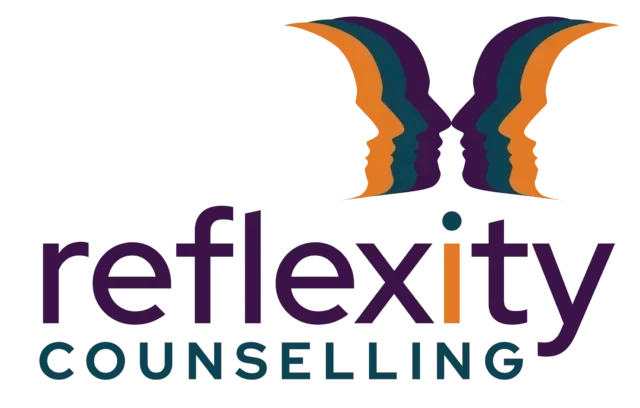Table of Contents
Thinking about being neurodivergent may come with a mix of relief, confusion, and even fear. Maybe you’ve stumbled across stories online that resonate deeply, or a friend suggested you look into autism or ADHD, or you’ve always felt “different” but never had a clear explanation. Whatever led you here, wondering if you’re neurodivergent is the start of an important journey of self-understanding. So, what comes next?
Give yourself permission to explore

No two neurodivergent people are exactly alike. It’s okay to lean into curiosity rather than rushing toward certainty. Read blogs, listen to neurodivergent voices on podcasts or social media, and notice what feels familiar. ADHD Chatter is a useful podcast covering all sorts of neurodivergent topics. Many people find comfort in discovering that their lifelong quirks or struggles have a name and it can be a relief to find there’s a welcoming community behind them.
I found talking to a counsellor helped me learn more about myself and come to a place of acceptance…”
Consider assessment—but know it’s not the only path
Some people may choose to seek a formal diagnosis. This can provide validation, access to workplace or school accommodations, and a clearer medical record. However, assessments can be expensive, difficult to access, and may be biased towards outdated stereotypes. The National Autistic Society have put together some videos answering some questions you may have about getting a formal diagnosis.
Self-identification is valid. It is possible to embrace the identity and find support in the neurodivergent community without a formal diagnosis. The right path depends on your needs, resources, and personal journey.
I did go for a formal diagnosis as I needed the validation, for myself, but I didn’t need it to be accepted in the autistic community.”
Learn about your traits and needs
You may feel that autism or ADHD describes your experience but it can also be helpful to zoom out and explore the wider concept of neurodivergence. Many people discover that their challenges and strengths don’t fit neatly into one box, and that’s completely normal.
It may be useful to reflect on your unique mix of traits, needs, and preferences. Do you notice patterns or differences in how you process information, handle sensory input, or manage social and emotional energy? It can be helpful, not just to focus on difficulties but also notice your talents, passions, and the kinds of environments where you thrive.
I’ve always been told I’m ‘too sensitive’ but I’m now discovering how wonderful and even helpful being sensitive can be!”
Connect with the community

One of the most empowering steps is finding others who understand. Online forums, local groups, or social media communities can offer advice, empathy, and friendship. Voices from those with lived experience can provide so much more than clinical definitions. Being around other neurodivergent people who just “get it” can reduce feelings of isolation and help you feel proud of who you are.
Having an autistic counsellor was an important step for me, having someone who understands the struggles first hand has been incredible valuable!”
Reframe how you see yourself
It can be an extraordinary experience to look back over your life through a neurodivergent lens. Things you previously thought of as flaws—needing downtime after socialising, preferring routine, or communicating in straightforward ways—might simply be natural expressions of who you are. You may previously have felt as though you have to conform to societal expectations; this may have led to exhaustion, feelings of shame or low self-esteem. Recognising you’re neurodivergent may help you realise you’re not broken or doing anything wrong and you can challenge the idea that you need to be ‘fixed’. Instead, the focus shifts to understanding, compassion and supporting your needs.
I used to beat myself up for being such a ‘weirdo’ but counselling has help me embrace who I am!”
Make practical adjustments
Once you understand your neurodivergence, you can make everyday life easier by creating environments and routines that support you. These don’t have to be huge changes—small, intentional shifts can reduce stress and improve your quality of life. Here are some examples:
- Sensory supports: Noise-cancelling headphones, sunglasses, fidget tools, or weighted blankets can help you manage overwhelming environments. Adjusting lighting or using scent-free products might also reduce sensory stress. Alternatively you may embrace high sensory input as/when needed for example, listening to loud music or adding condiments or spices to your food.
- Energy management: Plan downtime before and after social events or demanding tasks. Some people use the “spoon theory” or energy-tracking apps to monitor how much they can take on each day.
- Structure and routine: Use calendars, timers, or checklists to help with time management and create a baseline routine. This can ease anxiety, reduce decision paralysis and make transitions smoother.
- Communication strategies: Let friends or colleagues know if you prefer written instructions, direct communication, detailed instructions or extra time to process information. Even small adjustments in how you interact can make relationships feel less draining.
- Work or study accommodations: This could include flexible hours, curated sensory environment, or remote options. If you’re not formally diagnosed, you can still advocate for changes by framing them as productivity or wellbeing supports.
- Self-regulation tools: Experiment with stimming (repetitive movements or sounds) that calm or energise you, such as tapping, humming, or rocking. Stimming is a healthy way to self-soothe and regulate.
Remember, there’s no one-size-fits-all. What works for someone else may not suit you, and that’s okay. The key is to notice where you struggle, test out adjustments, and keep the ones that truly support your wellbeing.
Now I’m embracing my neurodivergent self, I’ve allowed myself to make the adjustments I need and it’s liberating!”
Final thoughts
This is not the end of your story, this is just the beginning of a more honest, authentic story. Whether or not you pursue a formal diagnosis, the door has been opened to greater self-knowledge, new connections, and a more compassionate way of living. Being neurodivergent isn’t something to fear or something that needs fixing, you are not broken. The journey to embracing it will be rewarding!
If you feel you may benefit from speaking to a qualified neurodivergent counsellor, please get in touch here!
You don’t need to have everything figured out right away. Take it one step at a time. Explore, connect, and honour your needs. The most important next step is simple: give yourself permission to be who you are!

